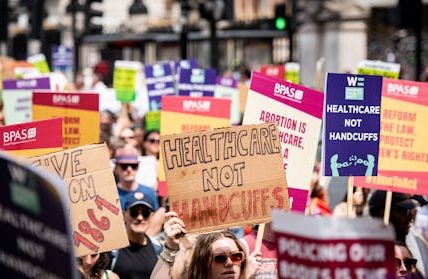With The Fantastic Four and Superman, superheroes are getting hopeful again – and showing strength through empathy
After years of multiverse chaos, grim antiheroes and morally ambiguous storylines, superhero films are making a striking return to their emotional and ideological roots. The new iterations of DC’s Superman and Marvel’s The Fantastic Four don’t aim to reinvent the genre – they return to its essence, offering stories grounded in hope, compassion and shared humanity.
Both films are reboots of familiar characters. Zack Snyder’s Man of Steel (2013) was the last major Superman feature, while Josh Trank’s Fantastic Four (2015) attempted – unsuccessfully – to reintroduce Marvel’s “first family”. These 2025 versions step away from the darker superhero tones popularised by Christopher Nolan’s Dark Knight trilogy to embrace vibrant colours and the idealism that made these heroes beloved in the comic books to begin with.
Whether by coincidence or design, both DC and Marvel are now releasing films that centre on embracing humanity – not in spite of difference, but through it. These stories reassert a message comic books have long championed: that community, support and acceptance are strengths. In doing so, they offer a powerful response to the social and political uncertainty of our time.
Looking for something good? Cut through the noise with a carefully curated selection of the latest releases, live events and exhibitions, straight to your inbox every fortnight, on Fridays. Sign up here.
Superheroes have always functioned as modern myths. Superman, first imagined in the 1930s, was created as a champion of the oppressed. The Fantastic Four, debuting in the 1960s, reflected the spirit of scientific discovery and familial unity.
Their return in 2025 is not just nostalgic. It comes at a moment of cultural significance when war, division and climate anxiety have made many of us question the future. These films don’t ignore that uncertainty, but offer a counterweight: stories that encourage belief in shared values and common purpose.
By reintroducing these characters with sincerity and emotional depth, studios are making a clear bet – that audiences are ready for hope again. And that doing the right thing still matters.
James Gunn’s Superman is a story about an alien learning to live among humans – not by distancing himself but by embracing vulnerability. The film puts moral clarity front and centre. Superman is no longer a distant figure. Instead, he is someone who chooses to believe in others. At one point, he says:
I am as human as anyone. I love, I get scared. I wake up every morning and, despite not knowing what to do, I put one foot in front of the other and try to make the best choices I can. I screw up all the time, but that is being human – and that’s my greatest strength.
This isn’t just sentimental. It’s a direct appeal to audiences facing a fractured world – to act with courage even in uncertainty, and to see all human life as worth protecting.
The trailer for Superman.
Marvel’s Fantastic Four reboot, First Steps, takes a similar approach. Rather than leaning into internal conflict, it reintroduces the team as a compassionate, collaborative unit. When the group faces a global threat, Sue Storm (Vanessa Kirby) reframes the challenge: “We will face this together, we will fight this together, and we will defeat this together – as a family.”
It’s a message not only to her teammates but to the world – framing difference as a strength, and unity as the path forward.
A genre renewed
Talk of superhero fatigue has grown in recent years. Some of that stems not from the heroes themselves, but from content overload and diminishing emotional stakes. When continuity outweighs character, even the most powerful icons can feel hollow.
But the return of Superman, the first superhero, and the Fantastic Four, the first superhero family, suggests the genre still has something meaningful to say – especially when it remembers what made it powerful. These characters remind us that heroism isn’t about perfection but perseverance – and that strength comes from empathy.
Other recent superhero films, such as DC’s The Batman (2022) and Marvel’s Thunderbolts* (2025), show that darker, emotionally complex stories remain powerful. They reflect real anxieties – climate crisis, political instability and distrust in institutions. These films resonate because they hold up a mirror to the world.
The trailer for The Fantastic Four: First Steps.
But there is also space – and perhaps a growing need – for stories that offer reassurance. Superman and The Fantastic Four present an alternative emotional truth: that even in fear and division, goodness, unity and belief in others remain possible. These films don’t reject complexity, they complement it. Where darker stories help us process uncertainty, these hopeful ones remind us of what we can still strive for.
Rather than being competing directions for the genre, these different approaches enrich it. One shows the world as it is; the other, the world as it could be.
Get your news from actual experts, straight to your inbox. Sign up to our daily newsletter to receive all The Conversation UK’s latest coverage of news and research, from politics and business to the arts and sciences.
The authors do not work for, consult, own shares in or receive funding from any company or organisation that would benefit from this article, and have disclosed no relevant affiliations beyond their academic appointment.



